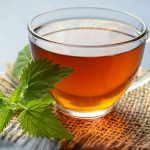Email: sales@aimco.co.ke | Telephone: +254 728 856 255
Introduction: A Journey Through Kenyan Tea
Kenya is renowned worldwide for its vibrant and flavorful tea. From the rolling tea plantations of Kericho to the lush highlands of Nandi Hills, the country produces some of the finest teas enjoyed globally. This guide delves deep into the world of Kenyan tea, offering insights, tips, and heartwarming stories that celebrate this beloved beverage.
Insert image of a tea plantation in Kenya, with workers harvesting tea leaves under a blue sky.
1. The History of Kenyan Tea
Kenya’s tea story began in 1903 when a British settler, G.W.L. Caine, introduced tea plants in Limuru. Today, Kenya is the third-largest tea producer in the world and the leading exporter of black tea.
Fun Fact:
Kenyan tea is mostly grown in high altitudes between 1,500 and 2,700 meters, which gives it a unique taste profile characterized by briskness and a bright amber color.
Insert an image of vintage tea tools or old tea plantations.
2. Types of Kenyan Tea
Kenya predominantly produces black tea, but other varieties are gaining popularity.
a. Black Tea
The most common and exported type, black tea from Kenya is known for its bold flavor and rich aroma.
b. Green Tea
A healthier alternative, Kenyan green tea has a delicate taste and is loaded with antioxidants.
c. Purple Tea
Unique to Kenya, purple tea has a mild flavor and is high in anthocyanins, which have numerous health benefits.
Insert an image of various types of tea in cups, showing their distinct colors.
3. The Art of Brewing Kenyan Tea
Making the perfect cup of Kenyan tea requires some finesse. Here’s how to do it:
Ingredients:
- Fresh Kenyan tea leaves (black, green, or purple)
- Water
- Optional: milk, sugar, honey, or spices
Steps:
- Boil water and add the tea leaves (1 teaspoon per cup).
- Let it steep for 3–5 minutes, depending on your desired strength.
- Strain and serve hot or cold.
- Add milk or sweeteners to taste, if desired.
Insert an image of a steaming cup of tea on a wooden table with fresh tea leaves around it.
4. Health Benefits of Kenyan Tea
Kenyan tea is not only delicious but also packed with health benefits:
- Rich in Antioxidants: Helps combat free radicals.
- Boosts Immunity: Supports a healthy immune system.
- Improves Digestion: Especially true for black and green teas.
- Promotes Relaxation: A calming ritual for your mind and body.
Insert an image of a person enjoying a cup of tea in a cozy setting.
5. Kenyan Tea Culture
Tea is more than just a drink in Kenya—it’s a way of life. Here are a few cultural insights:
- “Chai” Moments: Tea is often served during social gatherings, celebrations, or just to welcome guests.
- Milk Tea (Chai ya Maziwa): A staple in many Kenyan households, this is tea brewed with milk and sweetened with sugar.
Story Highlight:
Mary, a tea farmer from Kericho, shares how her family has passed down tea-growing knowledge for generations. “Tea is not just our livelihood; it’s our legacy,” she says.
Insert an image of a family on a tea farm, smiling proudly.
6. Where to Buy Authentic Kenyan Tea
If you’re looking to try Kenyan tea, here are some trusted sources:
- Local Supermarkets: Many stores worldwide stock Kenyan tea brands like Ketepa and Kericho Gold.
- Online Stores: Platforms like Amazon or specialty tea shops offer a range of Kenyan teas.
- Direct from Farmers: Consider supporting fair-trade initiatives for a more ethical purchase.
Insert an image of packaged Kenyan tea brands on a shelf.
7. Sustainability and Ethical Practices in Kenyan Tea
Kenyan tea farms have increasingly adopted sustainable practices, from using renewable energy in factories to ensuring fair wages for workers.
How You Can Support:
- Buy fair-trade certified teas.
- Choose brands that practice sustainable farming.
Insert an image of a solar-powered tea factory or workers in ethical conditions.
8. Tips for Storing Tea
To preserve the freshness and flavor of your Kenyan tea, follow these tips:
- Store in an airtight container.
- Keep away from direct sunlight.
- Avoid moisture and strong odors.
Insert an image of tea stored in stylish, airtight containers.
9. Recipes with Kenyan Tea
Kenyan tea isn’t just for drinking—it can be used in cooking too!
a. Kenyan Tea Latte
Ingredients:
- 1 cup brewed Kenyan black tea
- 1/2 cup steamed milk
- Sugar or honey to taste
Instructions:
- Brew the tea and pour it into a mug.
- Add steamed milk and sweetener.
- Stir and enjoy!
b. Tea-Infused Cake
Add a teaspoon of brewed tea leaves to your cake batter for a unique flavor twist.
Insert an image of a cup of tea next to tea-infused cake slices.
Conclusion: A Cup of Kenya in Every Sip
Kenyan tea offers a world of flavors, traditions, and stories. Whether you’re sipping a hot cup of chai or indulging in the health benefits of purple tea, each moment with Kenyan tea is a celebration of its rich heritage.
So, go ahead—brew yourself a cup and savor the essence of Kenya.
Insert an image of a picturesque tea plantation at sunset, symbolizing the end of the blog.





